9 Things To Not Say About A Black Child’s Hair
Share the post
Share this link via
Or copy link

Source: miodrag ignjatovic / Getty
In a recent interview with our Deputy Editor, Victoria Uwumarogie, Gabrielle Union addressed some of the negative comments she had been receiving about her daughter Kaavia’s hair on social media. To put it simply, some people have been and continue to take issue with the appearance of Kaavia’s tresses.
“Kaav swims every day, so even when her hair is done in the morning, she swims. So it’s not going to be picture perfect or whatever people feel that means. I’m human. I see comments where they’re like, ‘That child’s hair is never done.’ And it is done, I just don’t chase her around making sure that we document her looking super, super done every single day,” Union said. “You’ll see her like that on occasion. But regular, Kaav is going to run around here during a pandemic after swim class and it’s going to be what it is. You’ll see her natural curls. You’ll also see that they’re going to be moisturized. That’s more of what I care about, hair health, not the style.”
The conversation is very reminiscent of conversations that swirled around Blue Ivy’s head when she was less than a year old. As you’ll recall, people took things so disgustingly far that they launched a petition urging Beyoncé to comb Blue Ivy’s hair. While these reactions are exacerbated because Gabby and Bey are A-list celebrities and exposed to a much larger audience, the conversations are not much different than the unhealthy ones that are aimed towards the hair of everyday Black girls and everyday Black mamas.
Love MadameNoire? Get more! Join the MadameNoire Newsletter
We care about your data. See our privacy policy.
The unfortunate part is that many of the people who make these comments either mean well or don’t recognize the error of their ways. They’re our mamas, aunties, grandmothers, neighbors, sisters, cousins, and friends. Perhaps even we’re tempted to say some of these things ourselves sometimes. Sadly, the fact that people mean well doesn’t mitigate the harmful nature of their comments. So since we’re on the subject, here are ten things that you shouldn’t say about a Black child’s hair.

Source: jeffbergen / Getty
Their hair is unmanageable
Caring for natural hair can be a lot of work and at times, it can feel unmanageable. However, there’s a big difference between feeling that the workload is tough to manage and suggesting that a child has hair that can’t be managed. When anyone says that a Black child’s hair is unmanageable, it sends the message to the child that his or her hair is bad, which may lead them to believe that it has to be altered in order to be viewed as acceptable or beautiful. This is a belief that may follow them into adulthood and negatively impact the way that they see themselves.
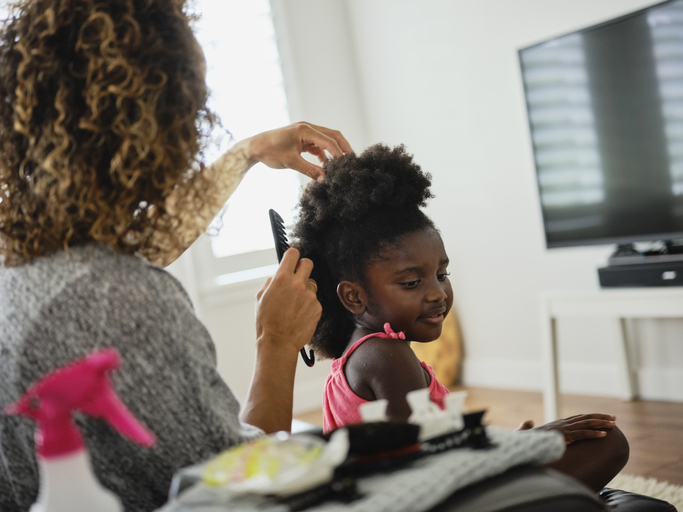
Source: RichLegg / Getty
They have good or bad hair
In 2021, most people are wise enough to have stopped using the term “good hair,” but the ideology behind the phrase is still alive and well. Adults unknowingly teach children that one hair texture is superior to another by praising one hair type while putting down the other. This is not just harmful to the children who have the hair texture being disparaged. It is also harmful to the children with the hair texture being exalted because it reinforces texturism and oftentimes, these children grow into adults who continue to perpetuate this idea and pass it on to their children.
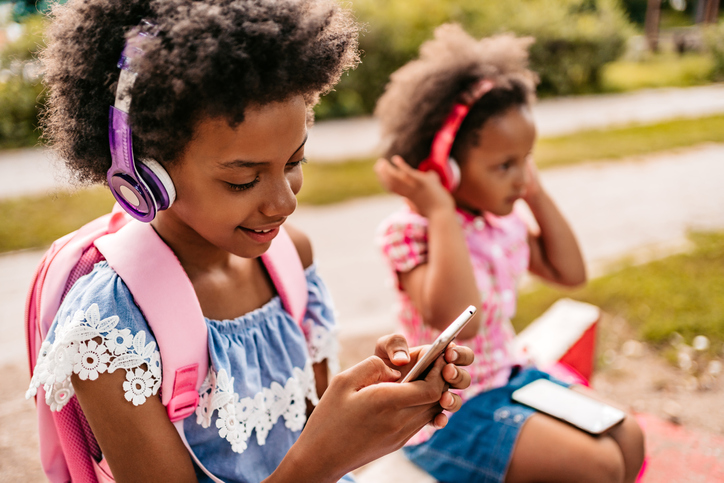
Source: urbazon / Getty
Their hair is never done
As evidenced by the previously mentioned Blue Ivy and Kaavia James examples, some people are ridiculously bothered when Black girls rock their ‘fros freely. They swear up and down that their hair is not “done” simply because it’s not in ponytails, braids, or twists. However, an afro is a style. To suggest that a child’s hair is not done, especially in that child’s presence, is problematic and hurtful. There is nothing wrong with anyone wearing their hair the way that it naturally grows out of their scalp. What’s important is that it’s moisturized and cared for.
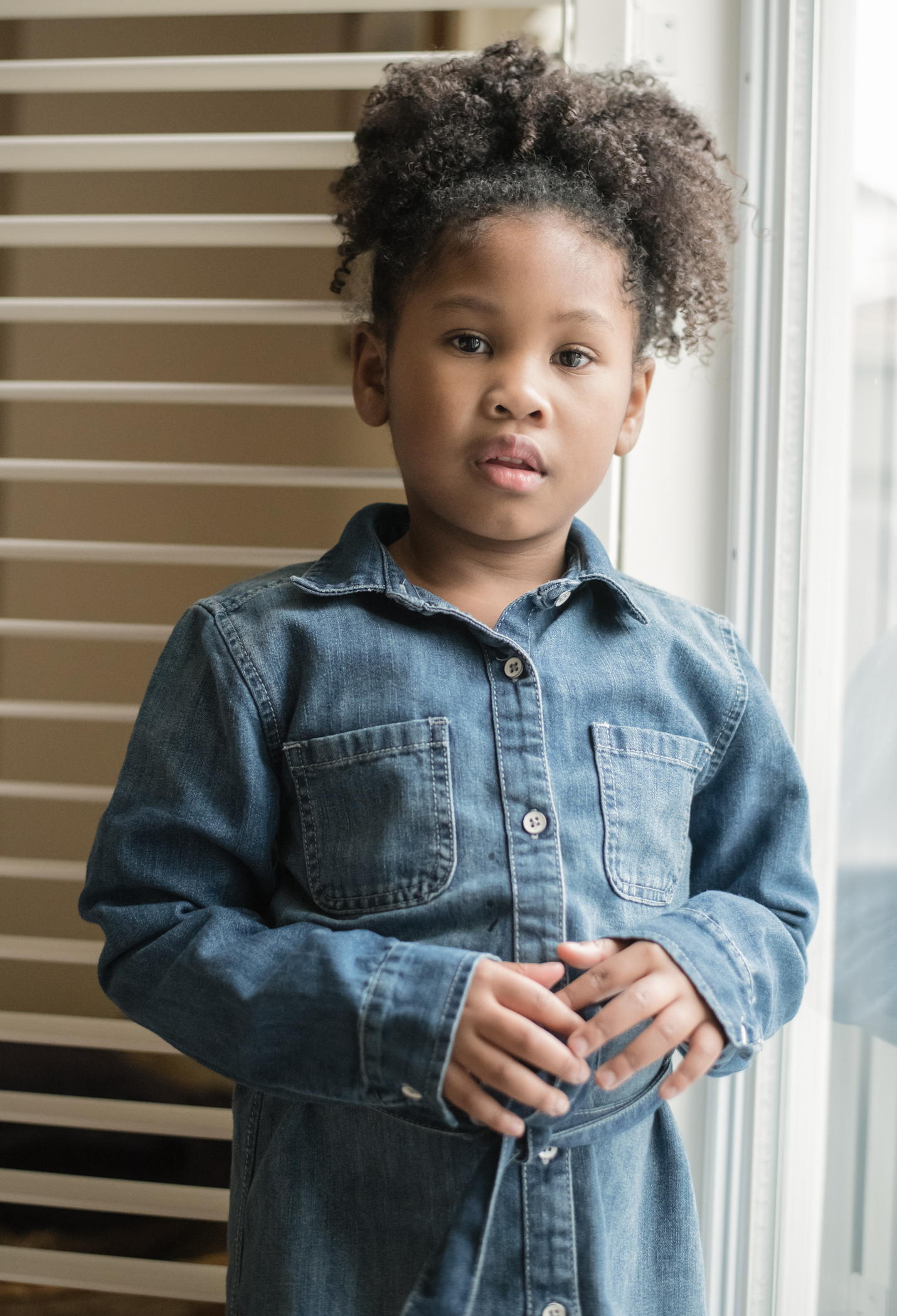
Source: FatCamera / Getty
They need a relaxer
To relax one’s hair is a personal choice. It’s not really anyone’s place, aside from the child’s parents, to decide whether or not a child should have their hair relaxed. To repeatedly tell a child or their parents that they “need” a relaxer is a violation of boundaries and it should be dealt with accordingly. Sadly, we often let these little comments slide because they typically come from our elders and we don’t want to come off as disrespectful. However, there are respectful ways to reinforce boundaries with loved ones and it’s important to do so — especially when the self-image and self-esteem of our children are at stake.
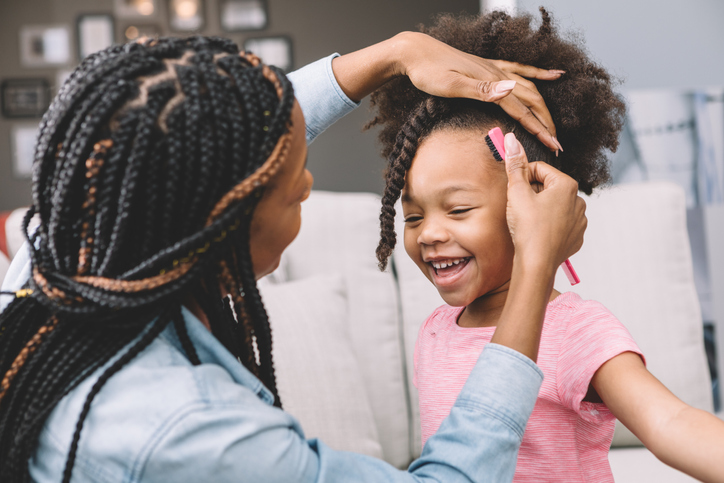
Source: Marilyn Nieves / Getty
Their hair would be so pretty straight
To build off of the relaxer conversation, there are also people who will see a child with a lot of hair and comment that the child’s hair “would be so pretty” if straightened. Sure, the child’s hair would probably look beautiful straightened, but these conversations often send the message that their hair is not beautiful as is and that’s where the problem lies. This mindset perpetuates the ideology that a European standard of beauty is the only standard of beauty and if left unchecked, it is one that children may internalize and carry into adulthood.
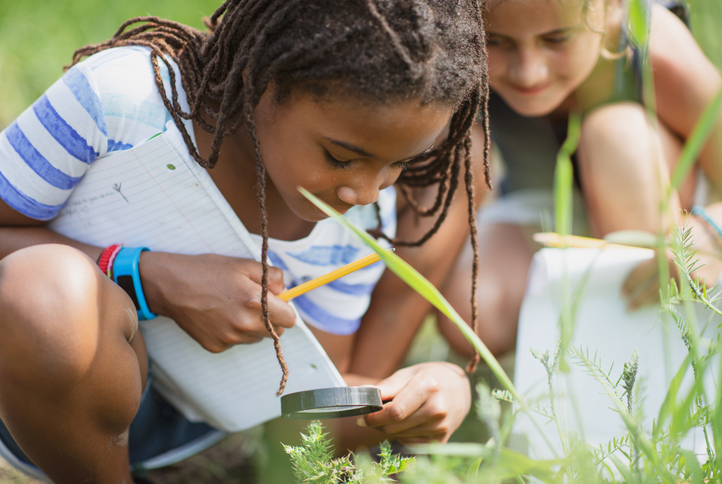
Source: FatCamera / Getty
Comparing their hair to another child’s hair
Measuring up kids against one another is already a big no-no, but comparing kids based on physical attributes like hair should never take place. Comparing children to one another is a sure way to wound their confidence because when they see the adults in their life comparing them to their peers, they will often follow suit. Chronic comparisons can lead to depression and long-standing feelings of inferiority, so it’s best not to even start your kids with going down that rabbit hole if you can help it.
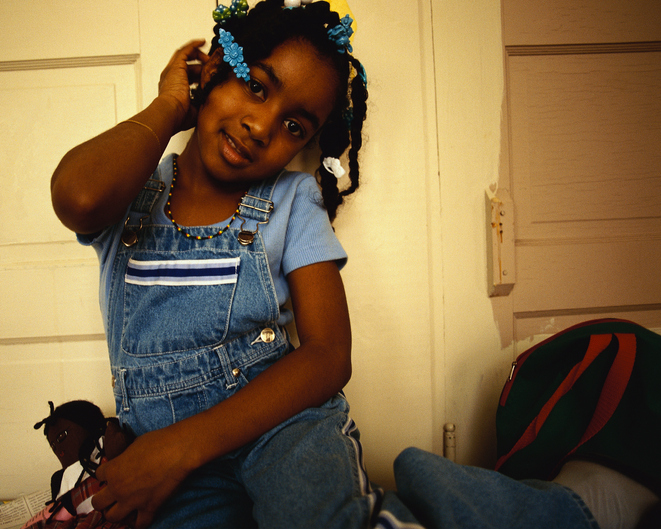
Source: Little Blue Wolf Productions / Getty
Their hair is nappy
Nappy is a word that has been rebranded and spun into something positive in recent years; however, there are still many who continue to use it in a derogatory way.
“Who has access to your child? What’s grandma saying? What’s auntie saying? Are they calling this child nappy-headed? Are they saying they can’t manage her hair?” Dr. Donna Oriowo questioned during an interview with MadameNoire last year. “It’s also about making sure that the people who are closest are checking themselves or that you are checking them when they need to be checked.”
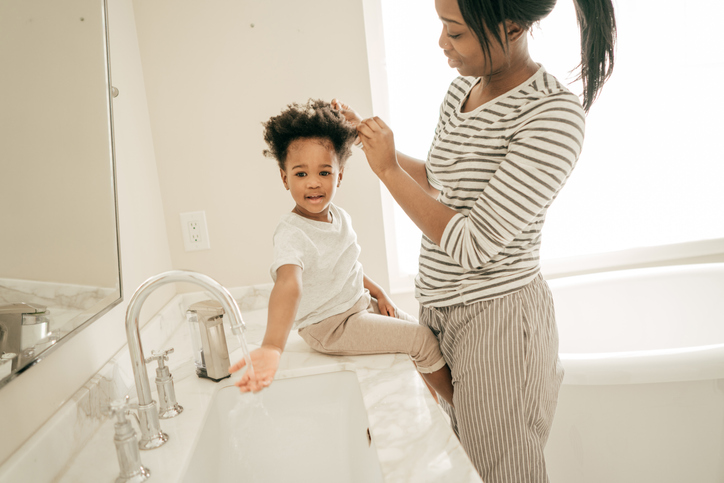
Source: kate_sept2004 / Getty
You don’t feel like being bothered with their hair
Children’s hair care, especially when you have multiple kids, can feel daunting, and sometimes, you just won’t feel like doing their hair. That’s completely normal. However, the way that we express our frustrations is extremely important. To suggest that you don’t feel like doing your child’s hair because of some specific characteristic of their hair, such as texture or length, can send a damaging message to children that they internalize. A child overhearing their parent or loved one speak negatively about their hair can result in negative feelings about their strands and self-image.
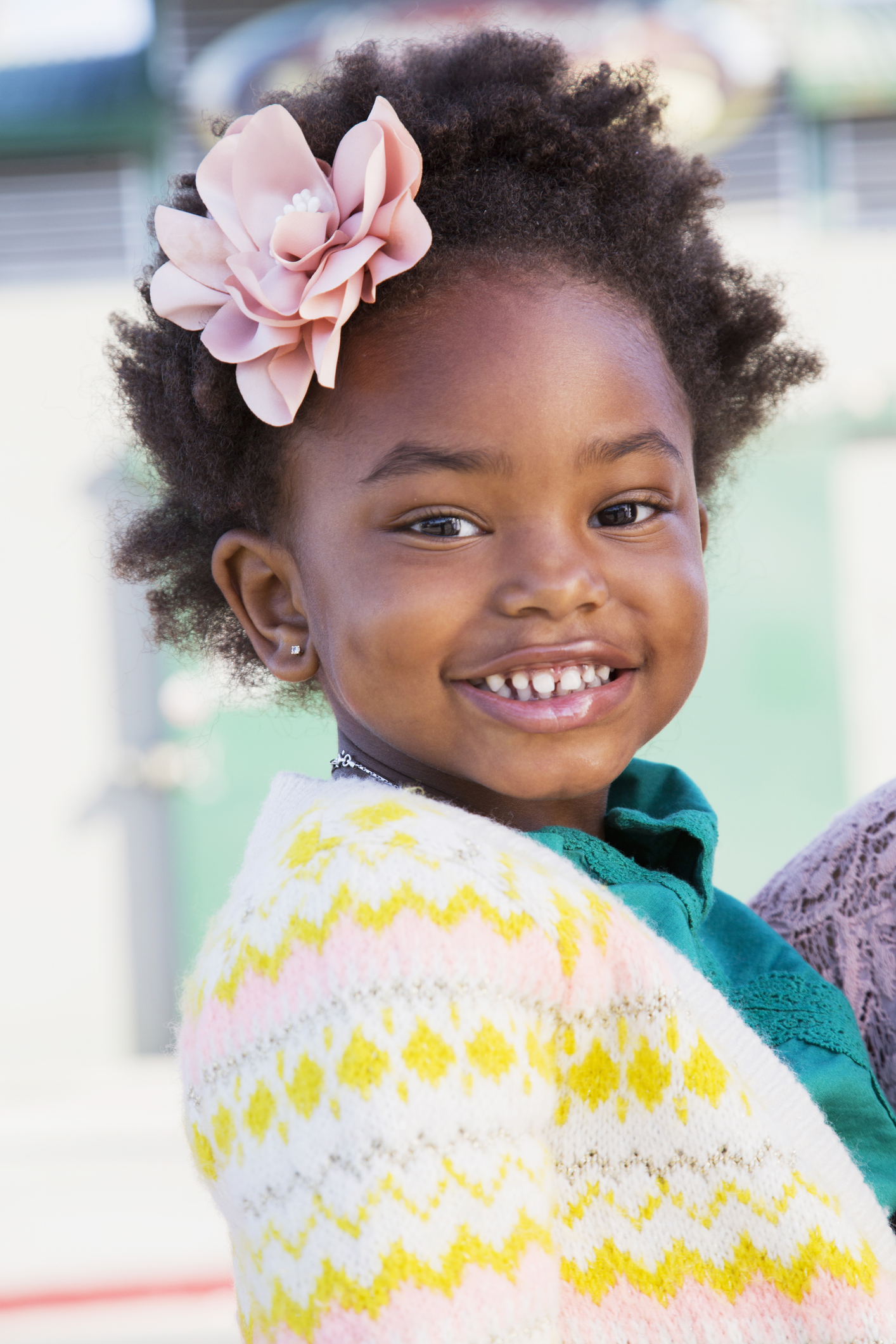
Source: Ronnie Kaufman / Getty
Anything derogatory about length or texture
For many, their self-image and identity are tied to their hair. It’s a part of who we are, which is why adults should not make negative or careless comments about child’s hair. Period. Not when they’re being disciplined and definitely not when you’re just playing around. Keep it positive or keep it moving. Additionally, if you notice hair-related teasing between siblings that have texturist undertones, it’s a good idea to nip that in the bud as well. Kids will be kids, but it’s also up to us, as the adults in their lives, to guide, mold, and protect them.
-

She Tried It: Inahsi Naturals Aloe Hibiscus Leave-In Conditioner & Detangler
-

Meet Dominique Fils-Aimé, The Haitian-Canadian Star Redefining Jazz For A New Generation: ‘This is My Vision' [Exclusive]
-

Cooking With Purpose — How Brittney Williams Honors Her Caribbean Roots Through Food
-

Our Health, Our Power: Debunking Myths And Taking Charge This Open Enrollment



